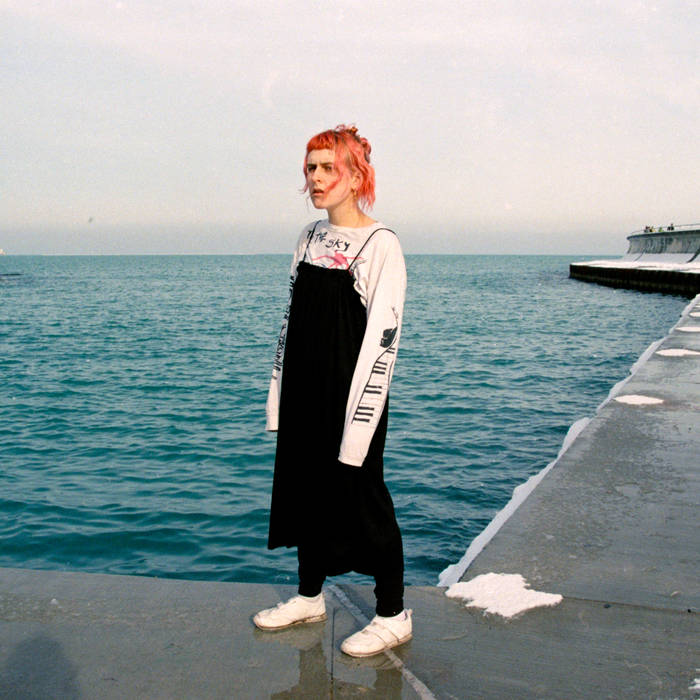by Huw Baines (@huwbaines)
It’s not always the shape of a song, or the way it seems to move, that catches our attention first. There are usually words, riffs, refrains or promotional baubles to navigate before that. But with The Lamb, the second LP from Chicago’s Lala Lala, it’s hard to suppress a curiosity to pick apart the layers and look inside.
The guitars, teeth gritted under the weight of reverb, interlock with skittering drum lines, programmed beats and Lillie West’s vocals, stacking up melodies and counter-melodies that immediately make you want to know more. In a recent interview with Bandcamp’s Eli Enis, West discussed sobriety and the process of figuring out more about herself. She went on to describe the album as the result of “unlearning a bunch of stuff and relearning a different way. Or trying.”
It sounds that way. The record has a fascinating capacity for stylistic left turns when another exit is clearly signposted. It’s like attempting to draw something you only saw for a second, resulting in several drafts that, when overlaid, add up to something completely new.
Across the piece there are moments of syrupy alt-pop (the fabulous opener “Destroyer”), gloriously hooky indie-rock (“When You Die”) and a handful of Girlpool-esque spare vocal takes, but they coalesce into a whole neatly thanks to their desire to spring a surprise.
West’s happy to settle on a form, but constantly nudges at their boundaries. On the standout “When You Die,” a pared back, hooky intro segues into a teetering tower of disembodied voices. On “Spy,” laconic melodies compete for space with a dancing bassline and synapse-popping synthetic drums.
The airy production allows for the feeling that anything could emerge from the haze, which makes direct, distorted charges like “I Get Cut” even more musically satisfying. “I’m so lucky that I’m never alone,” West sings, adding: “I get cut with every touch, you come by and soak it up.”
The Lamb is an engrossing album, one that shifts and shakes throughout. It never allows us to get comfortable, but at the same time West’s attachment to melody makes it feel warm and inviting. There are hints that it might spin off in any one of a thousand directions, meaning that future Lala Lala efforts could deliver anything at all. Ain’t that exciting?

